Arroz con gandules is not just a dish; it’s a story on a plate. This tasty meal has rice, pigeon peas, and a mix of spices that can make anyone’s mouth water. It’s like a party of flavors that has become a symbol of home for many people.
Long ago, this dish started as a simple meal. But over time, it became famous all over the country. Now, it’s a must-have at big parties and small family dinners alike. It’s amazing how a dish can tell us so much about where we come from and what we love.
In this post, we’ll take a trip through time to see How Arroz con Gandules Became a National Dish. We’ll learn about the ingredients that make it unique and how it’s made. So, get ready to understand why this dish means so much to so many people.

History of Arroz con Gandules
The Roots of the Dish
Arroz con gandules, or rice with pigeon peas, started as a simple meal. It was made by people who lived on the island a long time ago. They used what they had around them, like rice, beans, and spices, to make something delicious. This dish was easy to cook in big pots to feed many people.
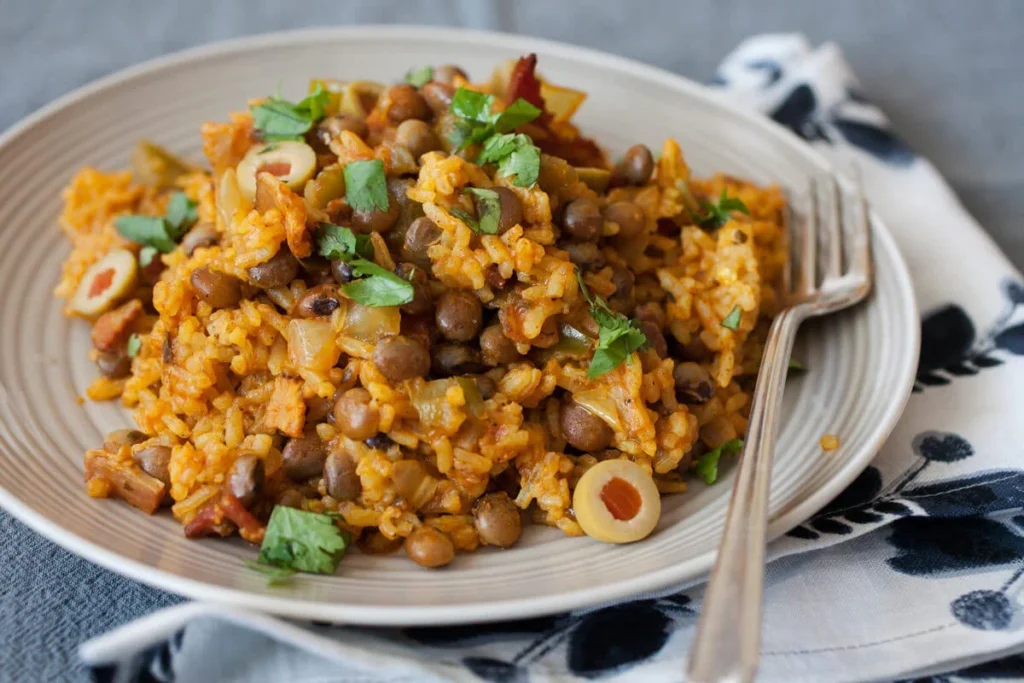
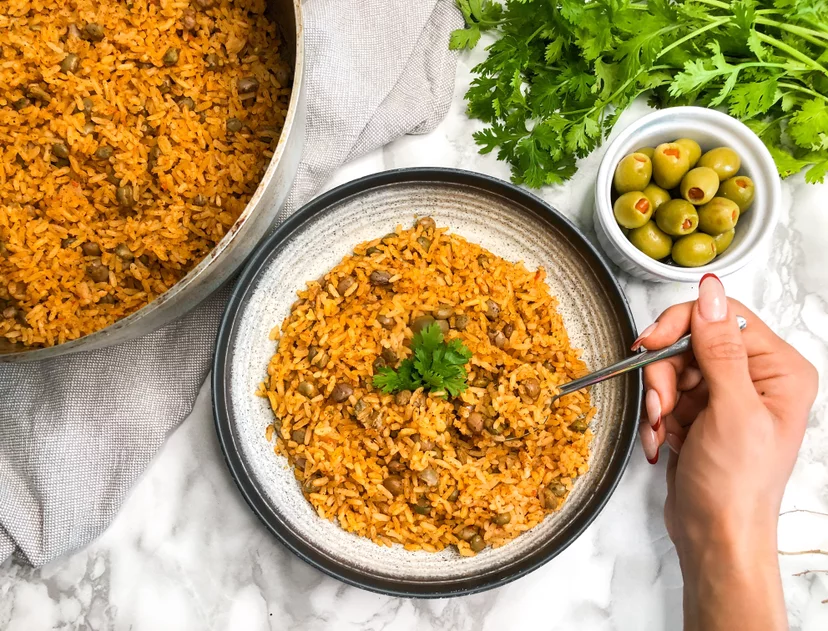
How Arroz con Gandules Became a National Dish
As people moved around, they took their favorite recipes with them. Arroz con Gandules was one of these recipes. It was so good that everyone wanted to try it. Soon, it wasn’t just made in homes but also at big events. It became a way for people to share their culture and show hospitality.
A Symbol of Unity
Over time, Arroz con Gandules became more than just food. It turned into a symbol that brought people together. No matter where you were from, sitting down to eat this dish made you feel like part of a big family. It showed the power of sharing a meal.

The Dish Today
Today, Arroz con Gandules is known all over the country. It’s not just a regular meal; it’s a special part of big celebrations. When people eat this dish, they remember their history and the things that make them unique.

Ingredients and Preparation
What You Need to Make the Dish
Arroz con Gandules is made with simple, tasty things that come together to make something really special. Here’s what you need:
- Rice: It’s the main part of the dish.
- Pigeon Peas: These are small, round beans that taste great.
- Sofrito: This is a mix of onions, peppers, garlic, and herbs blended together. It gives the dish its flavor.
- Sazon: A type of seasoning that makes the rice yellow and adds more taste.
- Meat: Sometimes, people add pork or ham to make the dish even yummier.
- Olives and Capers: These are little green fruits and flower buds that add a tangy taste.
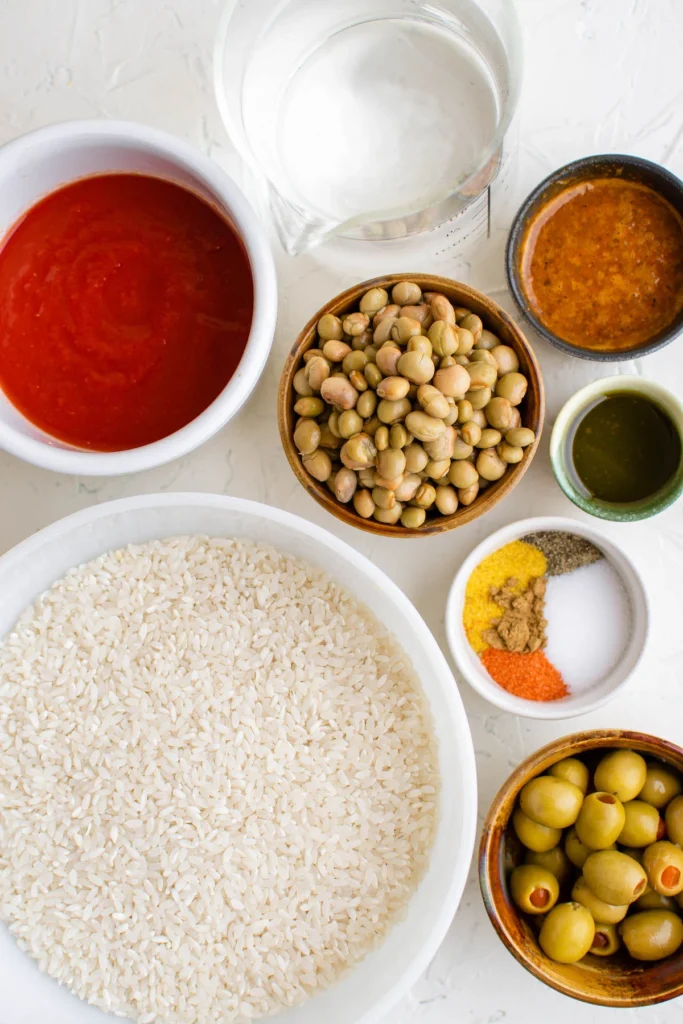
Putting It All Together
Making Arroz con Gandules is like going on a flavor adventure. Here’s how to do it:
- Cook the Sofrito: This is where the flavor starts. You cook it until it smells amazing.
- Add the Rice and Pigeon Peas. They go into the pot with the sofrito.
- Season It: This is when you add the season and any other spices you like.
- Cook Everything Together: You let it all cook until the rice is soft and everything smells like a big hug from your grandma.
- Serve and Enjoy: Once it’s done, you put it on a plate and get ready to eat a dish full of love and history.
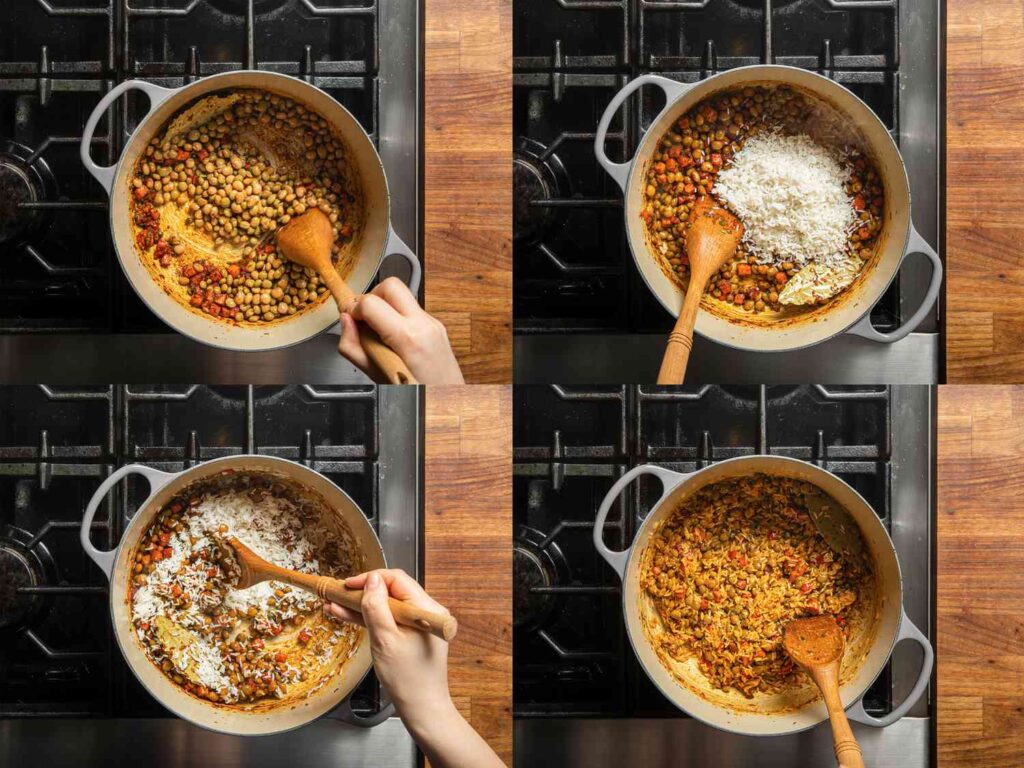
Cultural Impact
Arroz con Gandules isn’t just food; it’s a star at parties. Whether it’s a big holiday or a small get-together, this dish is always invited. It’s like the best guest that everyone looks forward to seeing.
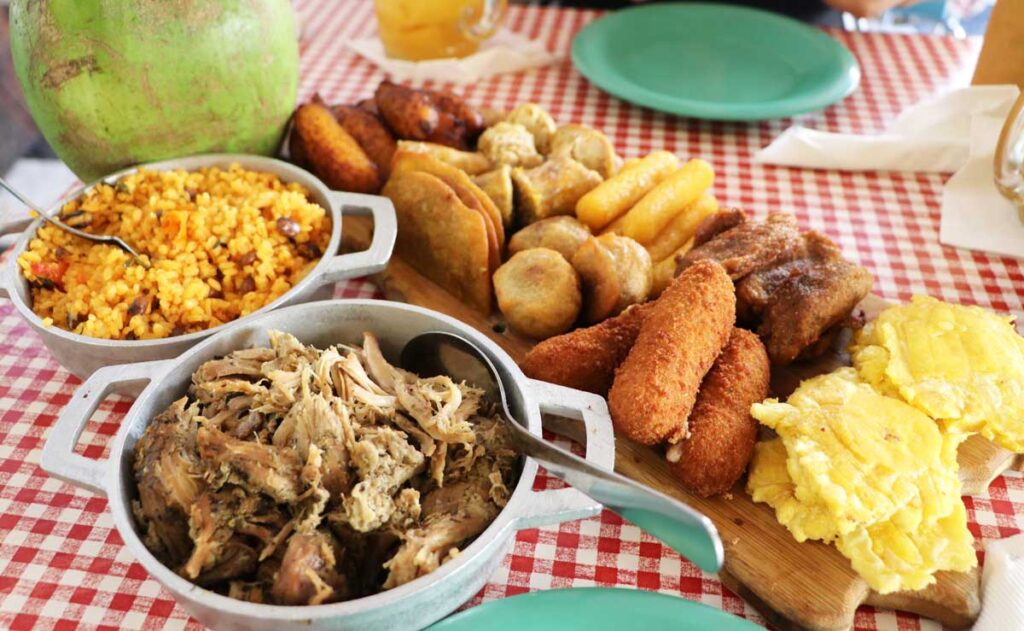
Sharing Culture Through Food
This dish does more than fill tummies; it shares a story. When people eat Arroz con Gandules, they’re tasting history and tradition. It’s a way for families to pass down their heritage from one generation to the next.
In Songs and Stories
Arroz con Gandules isn’t just on plates; it’s in songs and stories, too. Artists sing about it, and writers include it in their tales. It’s a way to show the world the pride people have in their culture.
Bringing People Together
What’s really special about Arroz con Gandules is how it brings people together. It doesn’t matter where you’re from; when you share this dish, you’re part of the community. It’s like a delicious bridge between hearts.
Arroz con Gandules Today

Modern Twists on a Classic Dish
Arroz con Gandules has been around for a long time, but it’s not stuck in the past. Chefs and home cooks love adding new things to make it even tastier. Some people throw in different veggies or use new spices to give it a twist. It’s like giving an old song a new beat.
A Dish for Everyone
What’s cool about Arroz con Gandules today is that anyone can enjoy it. You don’t have to be from a certain place or know special cooking tricks. It’s a dish that welcomes everyone to the table with a smile.
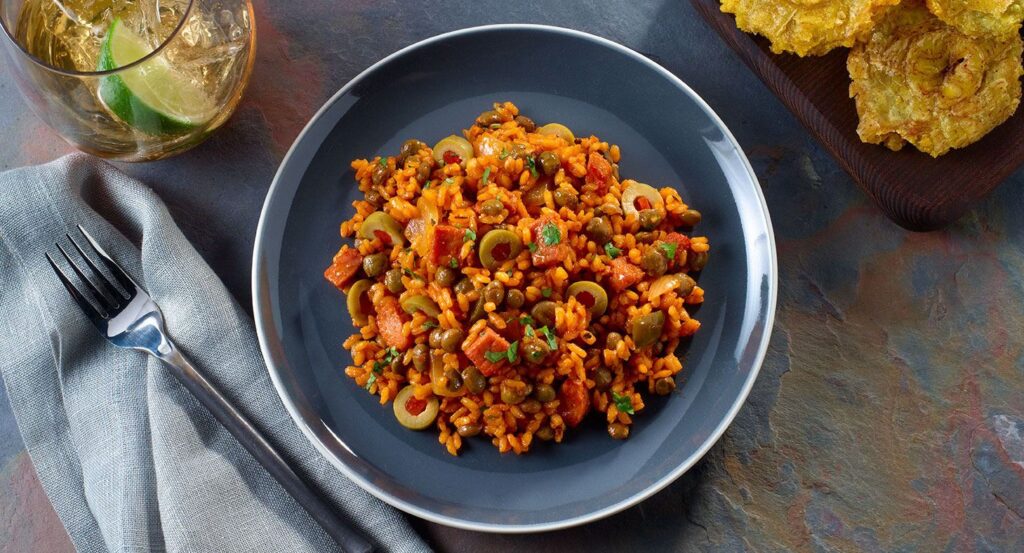
Healthier Versions
Nowadays, people are also making Arroz con Gandules in healthier ways. They might use brown rice or less salt to keep it good for the heart. It’s the same yummy dish, but it’s friendlier for our bodies.
Still a National Favorite
Even with all the changes, Arroz con Gandules hasn’t lost its spot as a national favorite. It’s still the dish people think of when they want to feel happy and full. It’s a taste of home, no matter where you are.

Final Analysis
Arroz con Gandules is more than just a tasty meal; it’s a dish with a story. We’ve seen how it started with simple ingredients and grew to be a favorite for many. It’s been part of family traditions and big celebrations, showing us how food can be so important.
Every time people cook and eat Arroz con Gandules, they’re keeping a story alive. It’s a story about where they come from and the things they love. This dish is a way to remember the past and enjoy the present.
As we look to the future, Arroz con Gandules will keep being a dish that people love. It might change a little here and there, but it will always be a special part of the culture. It’s a dish that will continue to bring smiles to faces for a long time.
FAQs
Disclosure: Our blog contains affiliate links to products. We may receive a commission for purchases made through these links. However, this does not impact our reviews and comparisons. We try our best to keep things fair and balanced, in order to help you make the best choice for you.
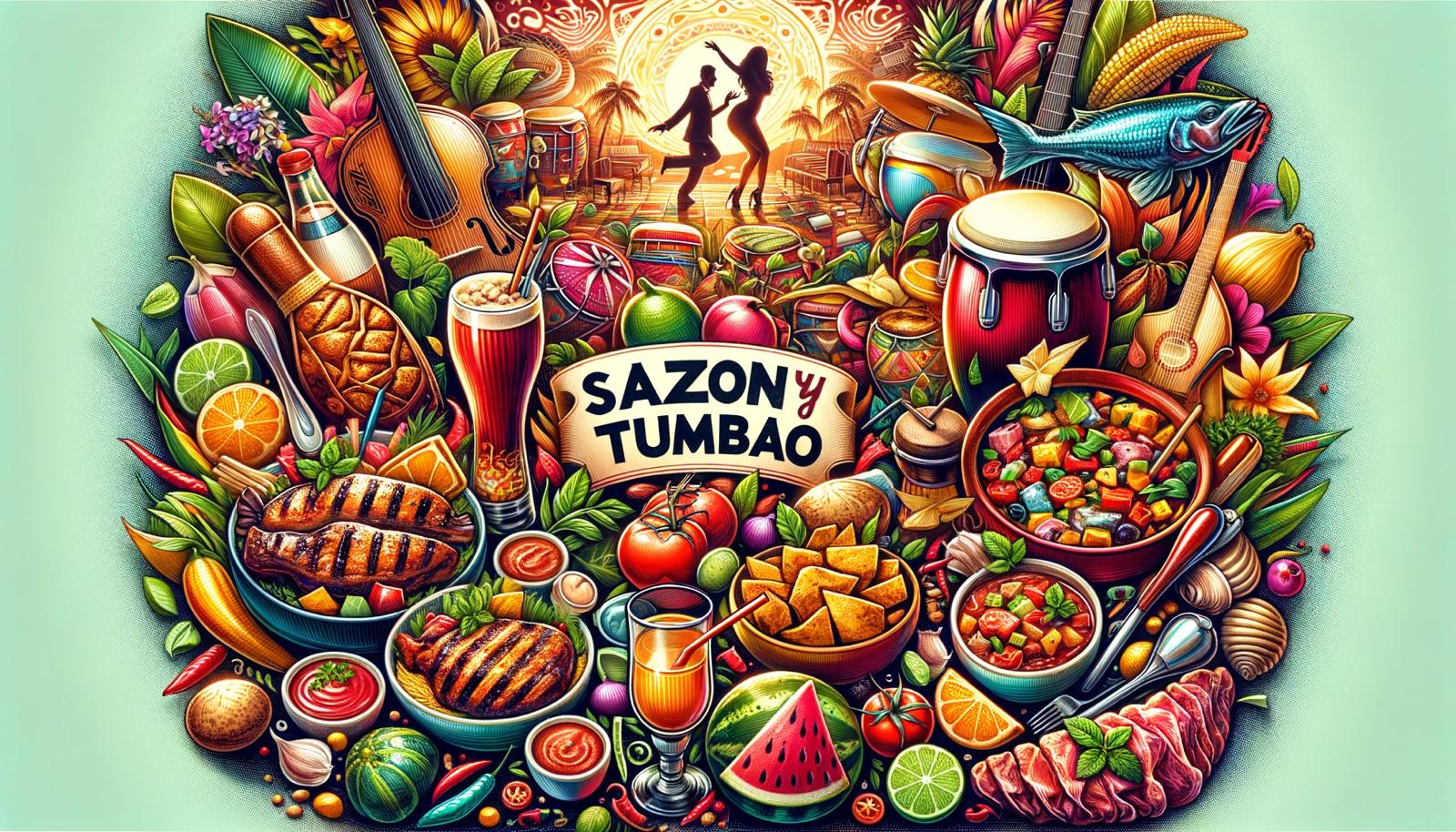


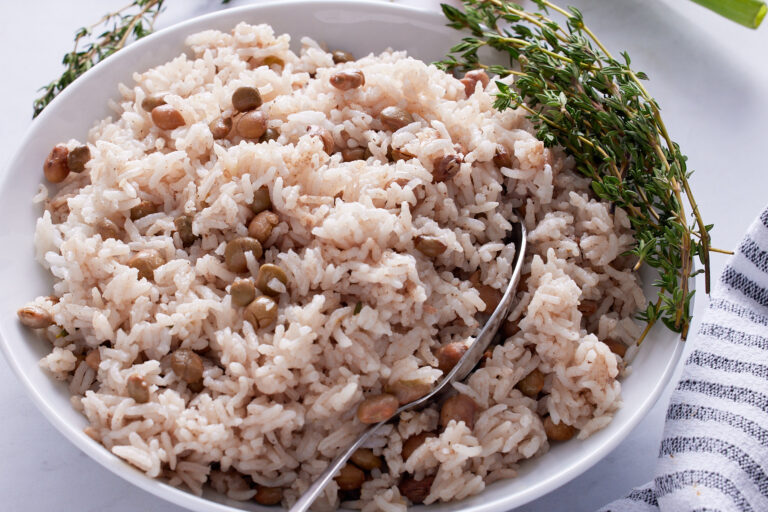

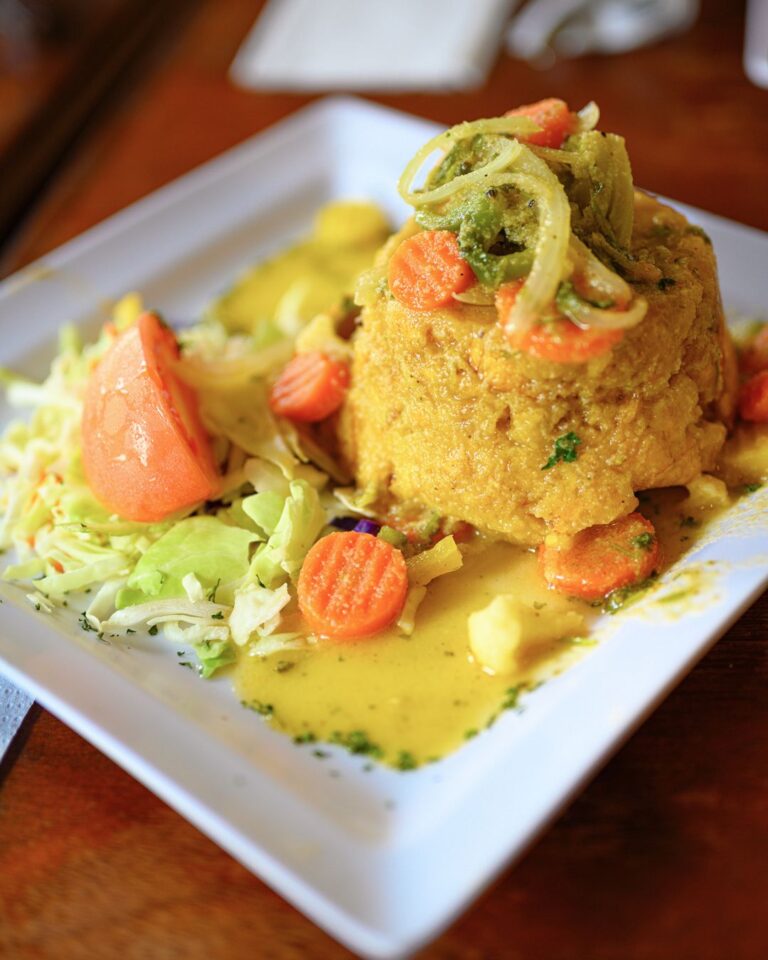
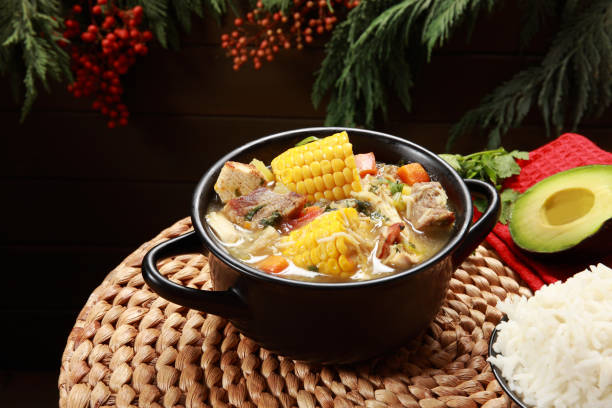

3 Comments